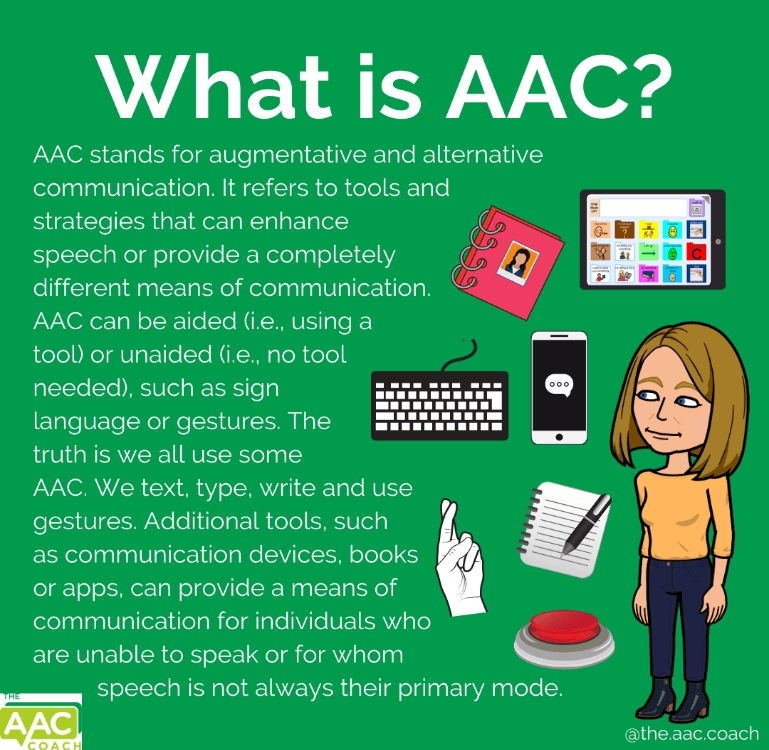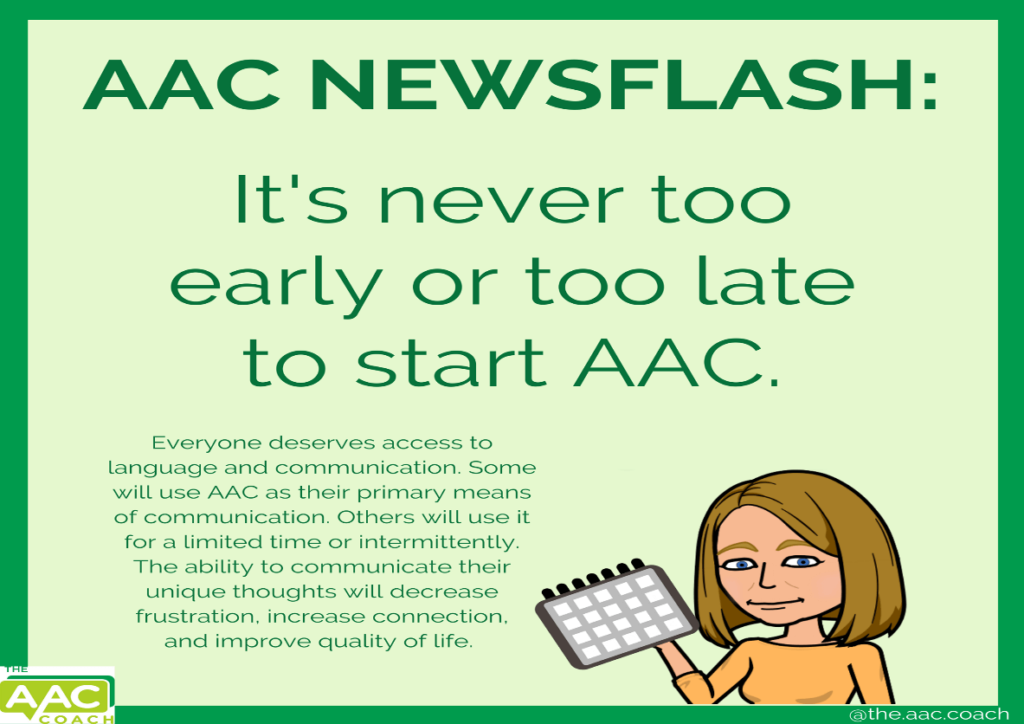October is AAC Awareness Month
Did you know that October is AAC Awareness Month? Do you remember your first word? Chances are it is logged in a family member or caregiver’s memory or tucked away in a baby book, marked as a milestone in a developmental checklist of sorts. The floodgates open as knowledge continues to be gained and expressive language explodes through those early years. But what if doesn’t? Speech is hard! We us at least 70 muscles for speaking. And, at minimum, 3 bodily systems required to coordinate, in a timely manner, to produce speech. It’s a remarkable process that deserves that celebration!
Sometimes when people navigate the complexity of communication, they need an augmentative or alternative measure. This is referred to as AAC.

AAC is augmentative when used to supplement existing speech. AAC is alternative when used in place of speech that is absent or not functional. Or, it can be temporary as when used by patients postoperatively in intensive care, for example (Elsahar et al., 2019).
Eliminate Misconceptions through AAC Awareness
Firstly: AAC will impede speech/language development.
TRUTH: The opposite is true. AAC aids in the development of speech and language skills by providing a means of communication. Early AAC use can help develop speech and language (Lüke, 2014; Romski et al., 2010; Wright et al., 2013).
Secondly: A person does not need AAC if they are “verbal”.
TRUTH: AAC is often a preferred way of communication and can greatly reduce the pressure to speak orally.
Thirdly: There is an age when AAC should be initiated.
TRUTH: Communication is a right at any age, including young children and adults alike. AAC can increase vocabulary for children with developmental delays aged 3 years and younger (Romski et al., 2015). Also, AAC use in preschool-age children may increase use of multisymbol utterances and grammar development (Binger & Light, 2007; L. Harris et al., 1996; see Romski et al., 2015). And, AAC may improve receptive vocabulary in young children (Brady, 2000; Drager et al., 2006).
Lastly: Caregivers and professionals may think that cognitive skills are a prerequisite to AAC use.
TRUTH: Cognitive ability does not preclude communication (Cress & Marvin, 2003; Zangari & Kangas, 1997). AAC may help children with complex communication needs develop functional communication and improve cognitive, literacy, and social communication skills (Drager et al., 2010). Presuming competence in AAC users is paramount. Every person can learn and, moreover, every person has the right to communicate.
Everyone deserves a voice and has something to say! For instance, if you have the pleasure of meeting an AAC user, just say, “Hi”.

To learn more about AAC, check out the Six Primary Communication Functions of AAC. You can also meet Ana Berlowitz and watch her use her AAC to introduce herself. If you think you or someone you know would benefit from AAC, call MOSAIC to schedule a consult with one of our speech-language pathologists.
